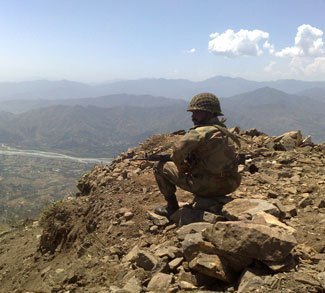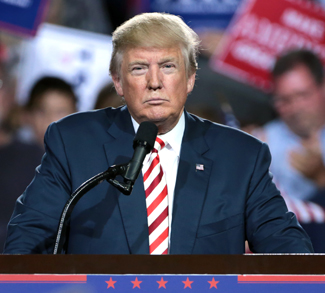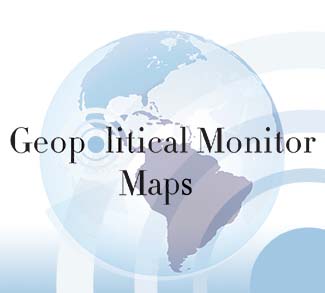Pakistan’s busiest airport came to a standstill on June 8 when 10 militants arrived dressed as airport staff and began shooting. It was shocking to see that despite the intense security in the city – with roadblocks and barricades at almost every major intersection – these militants were able to enter the airport premises without compromising their cover.
As typically seen after such a high-profile attack, the country’s politicians are now playing the blame game while the security establishment adopts a reactive strategy. However, rather than taking hasty action against the TTP, Pakistan’s politicians and military officers should take a step back from this emotionally-charged event and examine the facts at hand in the hope of producing an effective method to counter the militant threat. In this, there are two key factors that need to be addressed: the internal conflict within the TTP, and the growing involvement of foreign fighters.
First of all, contrary to what many critics have claimed, the peace process with the TTP resulted in one crucial breakthrough. It divided the group into those who do not want to reconcile with the government and those who do. The most striking example is the Mehsud tribe which split from the TTP due to an internal power struggle. They advocated for a peace deal with the government as they had more at stake. As a result of operations by the military, the tribe has seen more than 1.6 million of their members become displaced. With the war impacting 70% of the population in South Waziristan, the group believes that it should have the most influence in the TTP’s decision making. However, this has not been the case of late.
The Mehsud tribe finds itself in a precarious situation. The November 2013 drone strike which killed then-TTP leader Hakimullah Mehsud effectively created a rift between the Mehsud tribe and other tribes, as for the first time ever leadership of the group transferred to a non-Mehsud tribesman (Mullah Fazlullah from the Yusufzai tribe). The Mehsuds have always believed that they reserve the right to TTP’s leadership due to the amount of men they provide to the organization and the great number of losses that have been inflicted upon them during the last decade. Unsurprisingly, this change in leadership did not bode well for the Mehsuds, and between April and May there were numerous reports of skirmishes between them and supporters of Mullah Fazlullah. These skirmishes led to the Mehsud tribe breaking away from the TTP.
The attack on Jinnah international Airport cannot be more appropriately timed for the TTP. Since the split, many analysts have claimed that the terrorist group is weak without the Mehsud tribe, and that the government now has the upper hand in the peace process. Contrary to these claims, the attack has sent a strong message to the government that despite the internal conflict, the group is still able to terrorize the country. This leads us to examine the second fact at hand: the TTP used assistance from another militant group to carry out the attacks.
The most intriguing aspect of the airport attack was that it was not carried out by members of the TTP, but rather the Islamic Movement of Uzbekistan (IMU), a highly-trained militant group with several bases in North Waziristan. Though this was not the first time that IMU staged an attack on Pakistani soil, the group’s collusion with the Pakistan Taliban suggests that the TTP has resources outside its conventional tribal structure to mount attacks within the country. However, this approach has one significant disadvantage: the IMU cannot provide the TTP with the type of diplomatic support that a major local tribe like the Mehsuds can.
Contrary to widespread beliefs on the tribal areas of Pakistan, the region is not entirely lawless. This semi-autonomous region is ruled by a jirga (tribal council) that facilitates dialogue between different Pashtun tribes in the locale. Their main goal is to ensure peace among tribes and the wellbeing of the area’s native population. For them foreign fighters such as those belonging to the IMU are considered as a threat to peace in North Waziristan as their actions have put their people at risk. To support this claim, the Mohmand Tribal Jirga recently reiterated its support for the military campaign against militants in the agency, stating that the tribal people must keep watch on those “who want to sabotage peace in the region.”
The Pakistani military has now launched a full-scale campaign against militants in North Waziristan, specifically targeting IMU strongholds. While there is widespread public support for the operation, the efficacy of these attacks is questionable. There have already been reports of scores of civilians dying from airstrikes and more than 300,000 civilians have fled the area. Furthermore, members of the local community have said that swaths of militants have fled to the mountainous safe havens between Pakistan and Afghanistan in anticipation of the coming military campaign.
The military needs to take a more cautious approach towards engaging militants on the battlefield. They cannot afford to further exacerbate civilian grievances in the region as this may only encourage some tribes to support the TTP, thus risking the progress made during the peace talks. While the campaign is seen as a punitive measure against the TTP, the military should also not lose focus on the IMU. Rendering them weak would serve to further isolate the Pakistan Taliban. At the same time the government needs to better accommodate the influx of the internally displaced people (IDPs). The country needs to work immediately to allocate resources to provide for these IDPs. For though the military might make some territorial gains against the TTP, that won’t mean much if it doesn’t win the hearts and minds of the people in the conflict zone.




